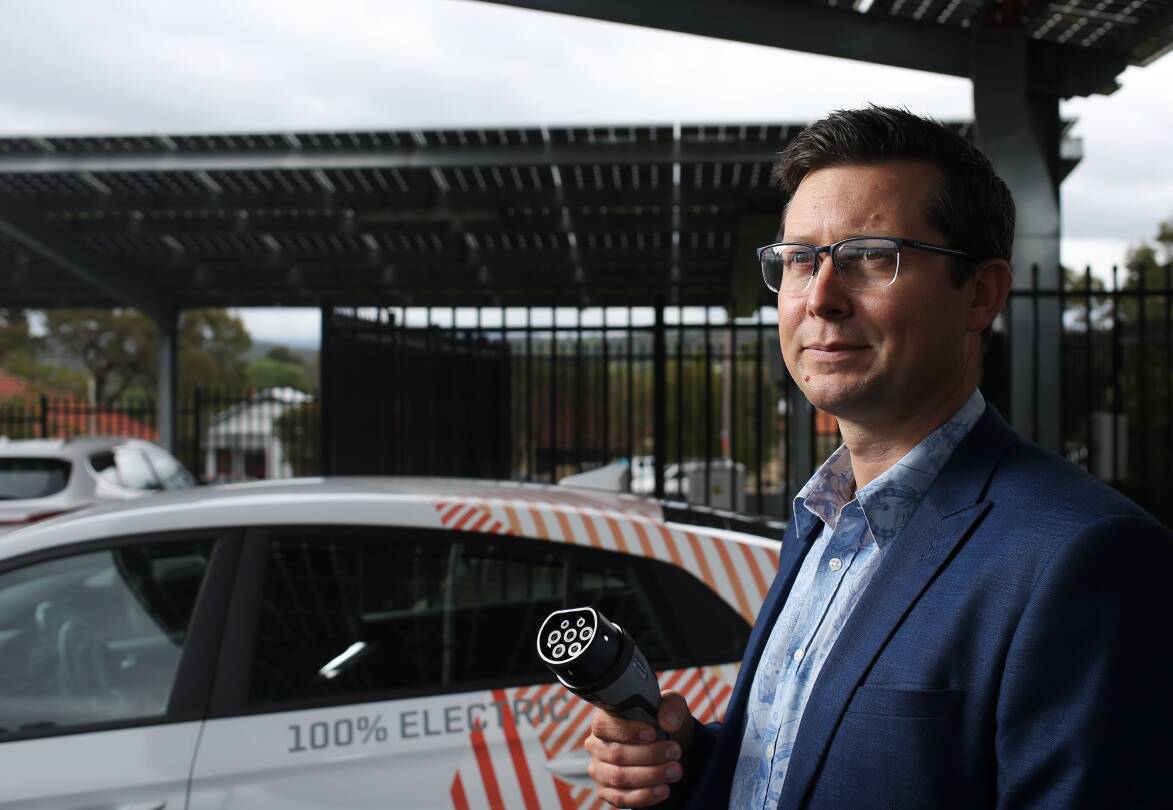
ELECTRIC vehicle (EV) chargers will be installed on street power poles across Lake Macquarie as part of a 12-month trial to improve access and encourage drivers to invest in the cars of the future.
At the moment, only people with private off-street parking, about 60 per cent of Australians, can reliably charge their EV.
With the take up of EV growing, people who live in apartments or don't have access to a garage with power are missing out, Lake Macquarie City Council asset optimisation coordinator Daniel Hartin said.
"When you look at new buildings or higher density dwellings like apartments, there's a lower prevalence of off-street parking, so understanding people's charging habits is a big part of the trial," he said.
"For us we can consider how much they're used and how it might increase the uptake of EV usage within the local government area.
"Compared to the rest of the Hunter, even though Lake Macquarie has the infrastructure, we're still behind in terms of new car sales within the area and we'd love to see that increase."
Lake Macquarie and Singleton are two of eight councils taking part in the trial, and the only two areas outside of Greater Sydney to be included.
The trial will roll out 50 chargers on power poles across the state, changing existing off-street parking to EV charging only parks.
Councils that take part will have the option to keep the chargers on a permanent basis after the trial.
According to the CSIRO, EVs will make up 70 per cent of new car sales as early as 2030, and 100 per cent by 2040.
In Lake Macquarie, the council is looking at installing the trial chargers at Harrison Street Cardiff, Smith Street Charlestown, Beach Road Redhead, Station Street Morisset and Ocean Street at Dudley.
The project will be maintained and managed by IntelliHub, with the council responsible for traffic advice, street works where needed, line-marking and signage as well as community engagement.
Mr Hartin said given 40 per cent of Australians don't have access to off-street parking, it makes sense to provide them with the infrastructure to charge their EV.
"This type of charging is very slow, other chargers around the city are fast-chargers, or DC, and there's a charge on a per use basis," he said.
"These would take overnight to charge up to 80 per cent so there will be no charge per use for the trial.
"We want to understand people's usage habits to see how the council can be part of planning EV infrastructure in the future, to see whether more charging would be done at work or at home or in more incidental areas like the shops or business centres."
He said the cost of the electricity will be covered by Origin, which is a partner in the trial.
About 50 street-side locations will be selected and the trial is being supported by the Australian Renewable Energy Agency with a $871,000 grant.
Intellihub chief executive Wes Ballantine said the project would help tackle the lack of public access to EV chargers, particularly for the one in four Australian households which do not have off-street parking.
"It's expected that as many as 10 percent of new car sales in Australia will be electric vehicles by 2025," Mr Ballantine said.
"That equates to an extra 120,000 new EVs on our local streets each year. It is likely that many of these car owners may be unable to charge their EVs from home.
"Power poles line most of our public streets and that presents an opportunity for the EV charging market.
"They're an accessible, safe, and practical option for EV charging."
Installations are expected to begin in October and be completed by the end of the year.







